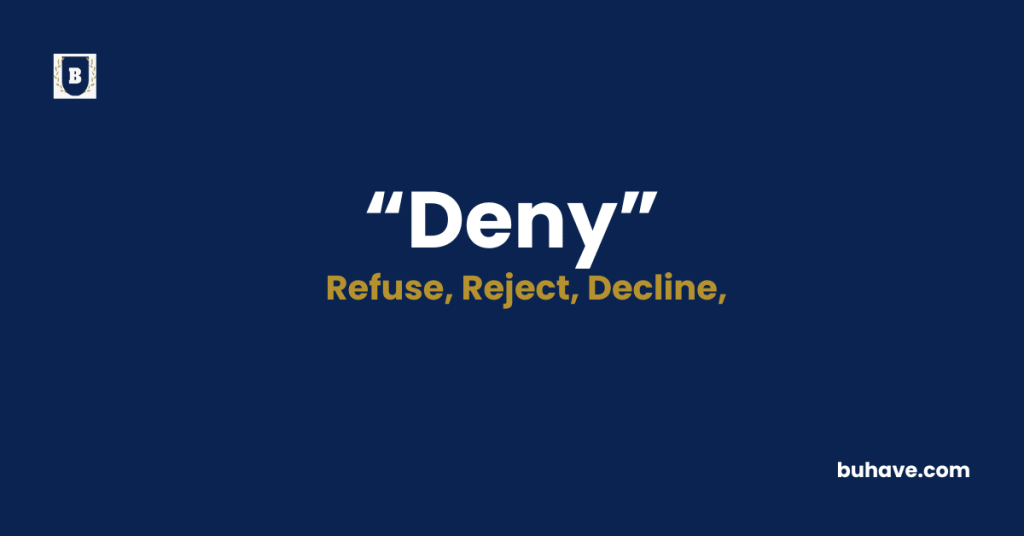The word Deny (verb) means to refuse to accept, acknowledge, or grant something. In this guide, you’ll learn the full definition, synonyms, antonyms, etymology, and real-life examples of how to use ‘Deny’ correctly in sentences.
Deny Explained in Depth
A complete and detailed guide to the word Deny including meaning, definition, examples, etymology, synonyms, and antonyms.
Meanings of Deny
Deny means to declare something untrue, to refuse to admit the existence or truth of something, or to withhold something from someone. It often involves rejection, refusal, or contradiction.
Definition
To deny is to state that something is not true or to refuse to grant a request, right, or privilege. It can be used in various contexts—legal, personal, emotional, or factual. For example, a person might deny involvement in a situation, deny access to information, or deny feelings. The act of denying can be defensive (as in denying accusations) or authoritative (as in denying permission).
Etymology
The word “deny” comes from the Old French denier, which originated from the Latin denegare, meaning “to reject” or “refuse.” The Latin root de- means “completely” and negare means “to say no” or “refuse.” The word entered Middle English in the 13th century and has been used ever since to express rejection, contradiction, or refusal in various forms.
Example Sentences
- She denied any involvement in the incident.
- The company denied his request for a refund.
- He couldn’t deny the facts once the evidence was presented.
Deny Synonyms
- Refuse
- Reject
- Disclaim
- Disavow
- Contradict
- Rebut
- Decline
- Withhold
- Dismiss
- Renounce
Deny Antonyms
- Accept
- Admit
- Grant
- Acknowledge
- Confirm
- Approve
- Recognize
- Allow
- Concede
- Authorize
FAQs about Deny
Here are some frequently asked questions (FAQs) about the word “Deny”
1. What does it mean to deny someone something?
It means to refuse to allow or grant them access, rights, or privileges, such as denying someone entry or resources.
2. Is denying always negative?
Not always. While it often implies rejection, denial can be protective or necessary in situations where boundaries or laws are being upheld.
3. Can someone deny facts?
Yes, people may deny facts either out of disbelief, ignorance, or intentional deception—even if evidence exists.
4. What’s the difference between “deny” and “refuse”?
“Deny” typically relates to rejecting truth or access, while “refuse” means declining to do or accept something.
5. How is denial used in psychology?
In psychology, denial is a defense mechanism where a person refuses to accept reality or facts to avoid discomfort or anxiety.

















